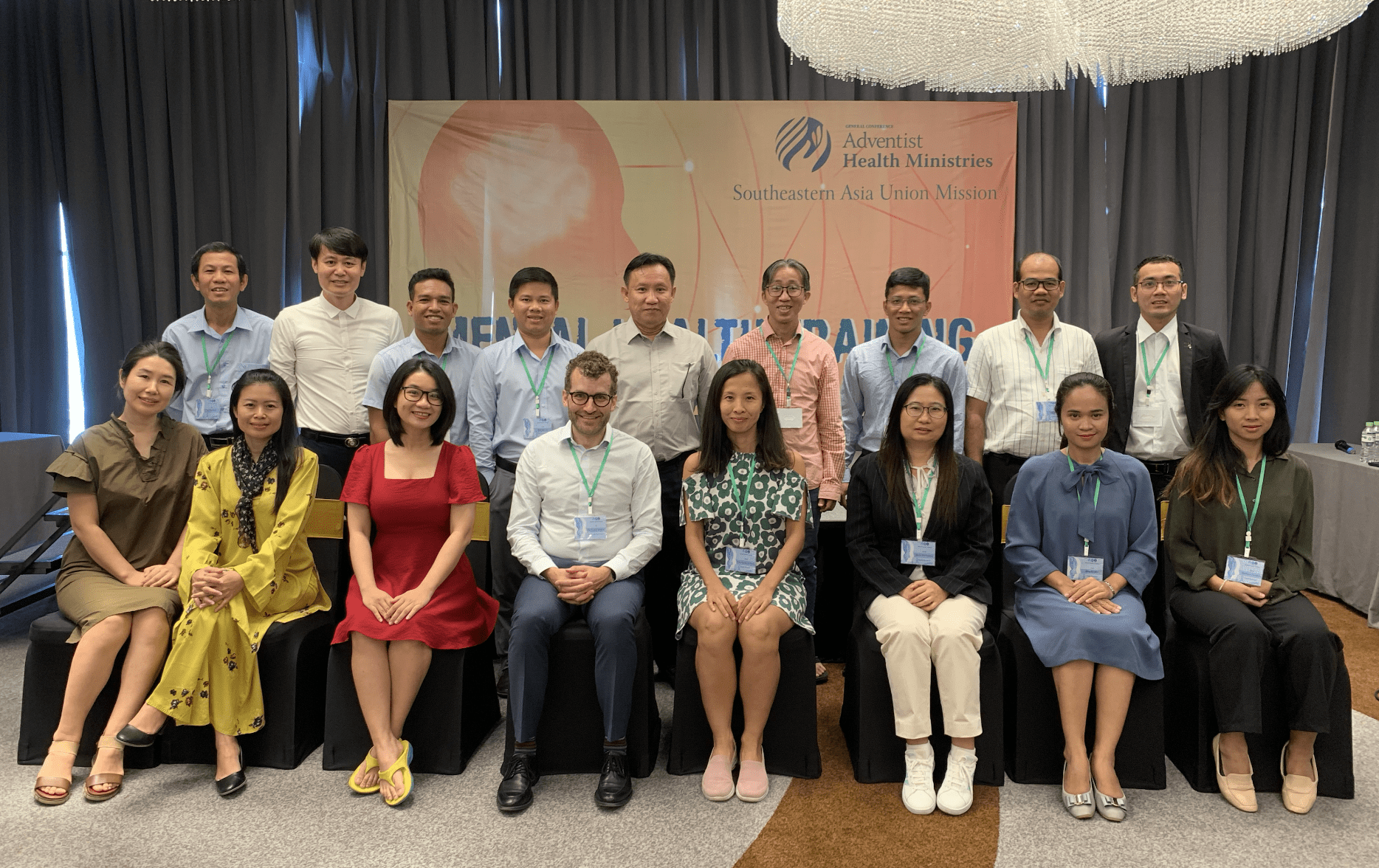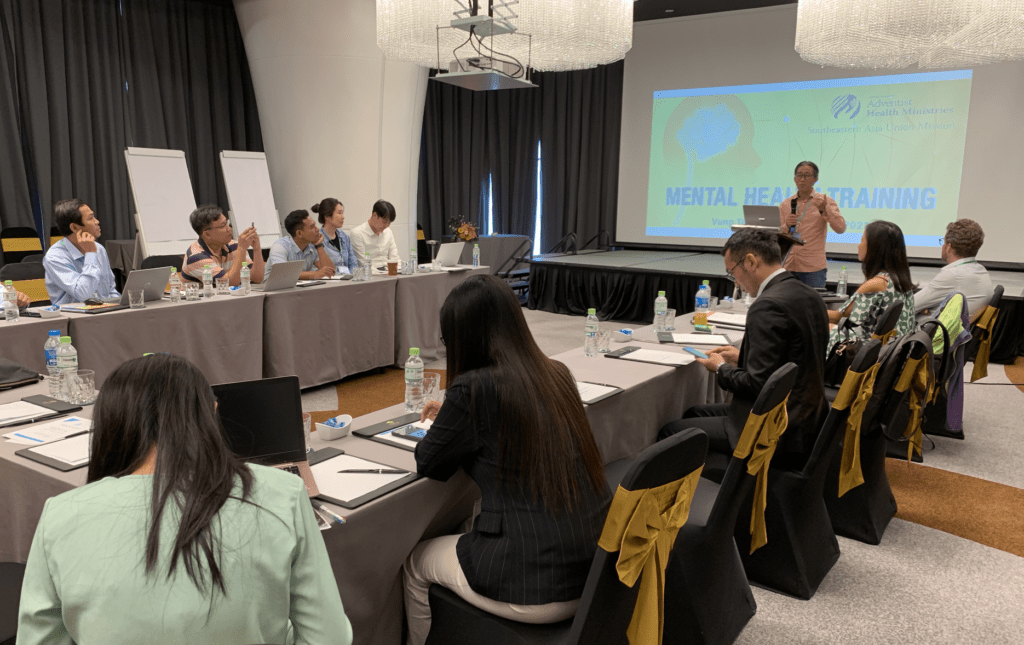
Adventist health leaders in the Southeastern Asia Union Mission (SAUM) of the Seventh-day Adventist Church met in Vung Tau, Vietnam, south of Ho Chi Minh City, from November 14 to 16 to conduct a regional mental health training. This was following a three-day mental health summit in Silang, Cavite, Philippines.
General Conference associate health ministries director Torben Bergland attended this inaugural SAUM meeting on mental health. Several leaders from various church departments attended the meeting, with the goal of learning how to cope with mental health crises and figure out how to bring Christ’s healing and hope to individuals who are experiencing mental health issues.
The program centered on an in-depth exploration of trauma, depression, anxiety, and how God's Word and mental health can work together to share hope and healing effectively. The addition of physical activities to the training regimen was an interesting improvement.
Delegates were encouraged by the organizers to participate in walking exercises while experiencing the local environment. Attendees were able to apprehend the significance of the process and how essential each discussion was in bringing healing to those dealing with mental health issues. It was possible, leaders said, thanks to the holistic approach and practical implementation of mental health development proposals.
Bergland introduced the ReMindEd program during the training. The ReMindEd mental health program is being developed as part of the General Conference’s response to the growing global concern about mental health. The initiative aims to assist people of all ages who are struggling with this issue around the world. The program is a comprehensive, holistic, evidence-based mental health resource.

From a whole-person perspective, leaders expect that ReMindEd will support and enhance mental health while also benefiting physical, relational, and spiritual health. In addition to serving people with mental illness, ReMindEd will also be valuable for anyone wanting to improve their mental well-being or support those with mental illness.
The ReMindEd curriculum aims not only to enlighten but also to empower and instruct. This approach is founded, Bergland said, on “evidence and statistical data.” It is something that helps the program’s designers in developing tools and materials that include spirituality in treating mental health problems. It is expected to be officially launched online in early 2023, Bergland said.
Bergland stressed the significance of the church’s role in assisting those who are in distress during his address. Pastors, young people, women, teachers, and health professionals are expected to discuss mental health, serve as sources of knowledge and inspiration, and actively promote mental health development on social media as the church equips its members, he said.
“The consequence of mental health issues may be prolonged suffering, maybe even deterioration, as opposed to optimizing management and recovery, and with that quality of life and functioning. God created humans as whole beings; therefore, we should care about the whole, not just some parts,” Bergland said.
According to data from the mental health division of Bach Mai Hospital, 30 percent of Vietnamese people have had at least one mental disorder in their lives, and 50 percent of those disorders require medical attention.
Delegates of the training recognized that the wholistic method is an approach that will enable the church to connect and help the community attend to this growing global challenge. Organizers said they expect this trend to continue. “We look forward to another intensive training on this issue in 2023 involving more delegates from within the Southeastern Asia territory,” they said.
The original version of this story was posted on the Southern Asia-Pacific Division news site.